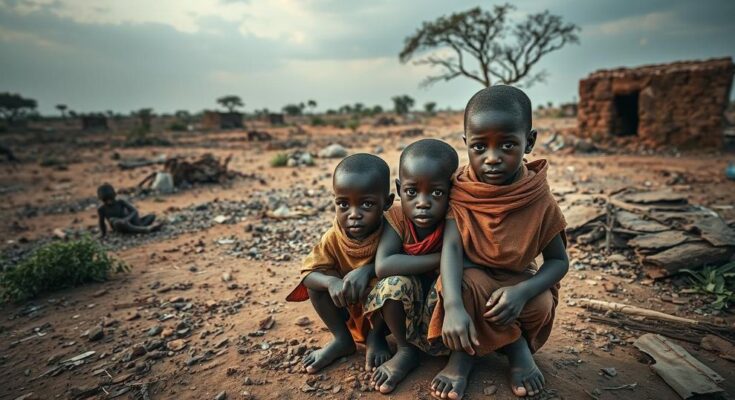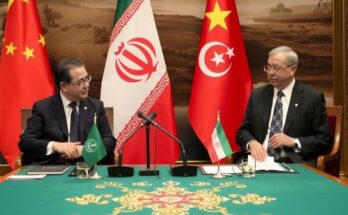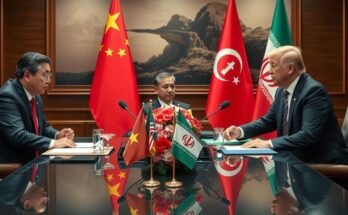The conflict in Sudan has resulted in a devastating humanitarian crisis, primarily impacting children. Nearly five million children have been displaced, facing severe malnutrition, lack of education, and risks of exploitation. With insufficient support for humanitarian efforts, there looms the threat of a lost generation as children like Ahmed and Amir grapple with their traumatic realities and uncertain futures.
Amina gazes through a veil of grief, recounting the tragic loss of her 17-year-old son, Ahmed, in the violent conflict that has engulfed Sudan. Amidst the chaos of gunfire in Sinja, Amina was forced to witness her son being shot, an experience that underscores the tragic toll the war has taken on children nestled within the heart of the turmoil. This conflict, which erupted in April 2022, has wrought destruction, leading to the world’s largest child displacement crisis with approximately five million children forced to flee their homes. For those who survive, hopes are dim, as famine and deprivation loom large, leaving millions without access to educational and healthcare facilities. The persistent violence has robbed children of their childhood; the realities of sexual violence and exploitation stem from the chaos, with aid agencies struggling to mitigate the fallout due to insufficient foreign aid and dangerous conditions. Mohamed Abdiladif of Save the Children articulates the dire situation, asserting, “Children’s lives in Sudan have been utterly torn apart and changed forever… A generation isn’t yet lost – but without help, it may well be.” The ongoing conflict between the Sudanese army and the paramilitary Rapid Support Forces highlights the failure of governance since the ousting of former autocrat Omar Al-Bashir. The situation has escalated, leading to significant violence, widespread abuses, and a catastrophic food crisis affecting more than half of Sudan’s population. Reports indicate famine conditions in regions like North Darfur, with millions of children on the brink of severe malnutrition. The ripple effects extend to neighboring South Sudan, which has welcomed over 810,000 refugees, where aid agencies witness the growing crisis day by day. Amidst this chaos, many children, including Amir, who was pursuing a computer science degree before the war, face an uncertain future, stripped of dreams and aspirations. The importance of immediate international support for children caught in this crisis cannot be overstated. Without intervention, children like Ahmed, Muna, and Amir risk becoming part of a lost generation, deprived of their fundamental rights and opportunities for a better future.
The ongoing conflict in Sudan, ignited by a power struggle between the Sudanese army and the Rapid Support Forces (RSF), has created a humanitarian crisis marked by widespread violence and food scarcity. The continuing power struggle has forced millions of civilians, particularly children, to flee their homes. Children constitute a significant demographic among the displaced, facing challenges such as malnutrition, lack of education, and heightened risks of violence. Humanitarian efforts are hampered by funding shortfalls and restricted access, exacerbating their plight.
The humanitarian crisis in Sudan demands urgent attention from the international community to prevent a lost generation of children. The conflict has severed the fundamental rights and futures of millions, manifesting through displacement, malnutrition, and violence. To address and alleviate the suffering of Sudan’s children, international funding and humanitarian assistance are crucial. It is imperative that the world acts swiftly to avert further deterioration of this current crisis, ensuring a better future for those affected.
Original Source: www.middleeastmonitor.com




